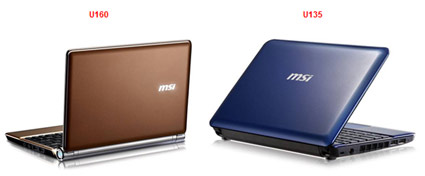
Lenovo Smartbook prototype
For the past 12 months or so, we've heard a lot of talk about mini-laptops running ARM-based processors. These so-called "smartbooks" feature low power ARM processors which means that while they can't run Windows XP or 7, they can run Linux, last for a very long time on a charge, and some feature integrated 3G connectivity and HD video acceleration features. You also get the ability to receive emails, instant messages, and other data even while the computer is in sleep mode. In other words, they're like a cross between a smartphone and a netbook, which explains the whole "smartbook" name.
But like I said, we've been hearing a lot about them for the last year or so, and haven't actually seen any hit the streets. But according to ET News, that could all change very soon. The president of ARM Korea says that as many as 20 ARM-based smartbooks could hit the streets in the first quarter of 2010.
Most, but not all of these devices will likely be sold by mobile broadband providers at subsidized prices. That means you may be able to pick up a smartbook for less than $200 up front. Some might even be free. But you'll probably end up paying up to $60 per month to actually use the 3G wireless capabilities, which means that over the course of a 2 year service contract you could end up paying between $1400 and $1600 for a device that looks like a laptop, but which has a slower processor and won't run Windows.
Of course, they'll also get much better battery life than a typical notebook. But I'm still of the opinion that when you hand somebody a device that looks like a laptop, they'll expect it to function like one. And for most people that means it needs to run Windows.
On the other hand, I think you could make a case that people would love a device that lets them check email, surf the web, and send short messages on the go over a broadband connection, if it didn't have such a high monthly cost. If the UI looks more like a cellphone than a computer, maybe people would get used to the idea that smartbooks aren't supposed to do everything that traditional computers do. For instance, they could run Google's upcoming Chrome Operating system, which is essentially a glorified web browser. And if wireless carriers charged just $10 or $20 a month on top of your existing phone bill instead of $60, I'd be a lot more interested.
So will 2010 be the year of the smartbook? It certainly looks like we're going to see a whole lot of smart books hit the market soon. But it's too early to say whether anyone will actually buy them. It seems like the industry is taking the exact opposite approach here than it did with netbooks. In the netbook space, Asus was the only company to launch a low cost 7 inch mini-laptop in late 2007. It was wildly successful, proving that there was demand for this type of product. In 2008, everybody and their kid brother launched a netbook.
In 2010, it looks like we can expect everybody plus that little sibling to put out a smartbook without waiting for anyone to test the waters first. It's a gamble. But you know, sometimes gambles do pay off. Sometimes.
via Netbook Choice
Post from: Liliputing
Ready or not, 2010 could be the year of the smartbooks

– SuperBiiz (coupon: SHINE0530)
- SuperBiiz (coupon: SHINE0530)
– PC Micro Store/Amazon
– Amazon
– Buy.com







 I haven't heard anything from Samsung about any new or upcoming netbooks with Intel Atom Pine Trail processors. But French retailer Rue de Commerce is selling a new model called the Samsung N220 which appears to be an updated version of the Samsung N140. The main difference? the new model has a 1.66GHz Intel Atom N450 processor.
I haven't heard anything from Samsung about any new or upcoming netbooks with Intel Atom Pine Trail processors. But French retailer Rue de Commerce is selling a new model called the Samsung N220 which appears to be an updated version of the Samsung N140. The main difference? the new model has a 1.66GHz Intel Atom N450 processor.





























